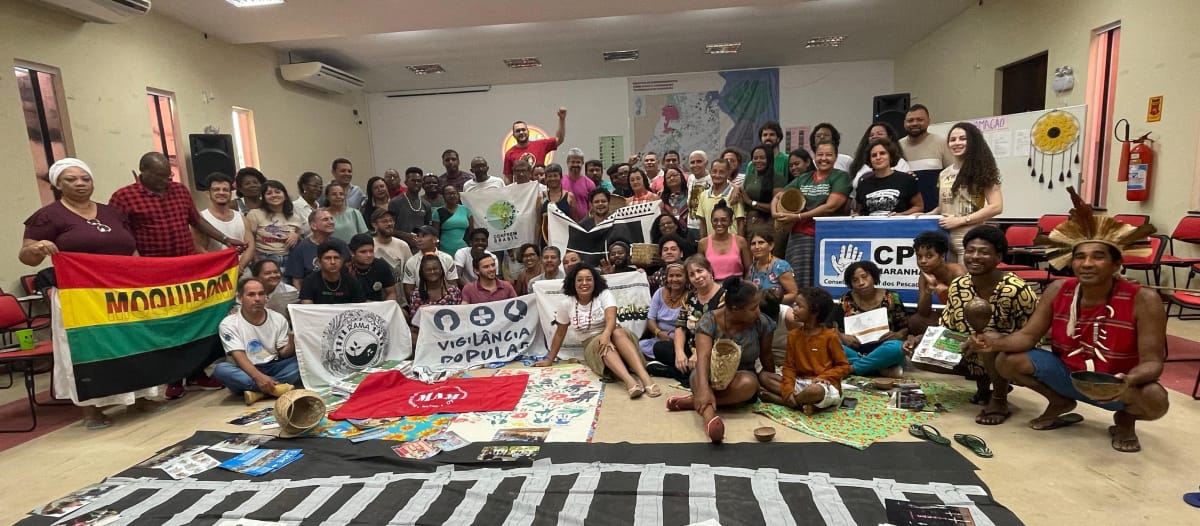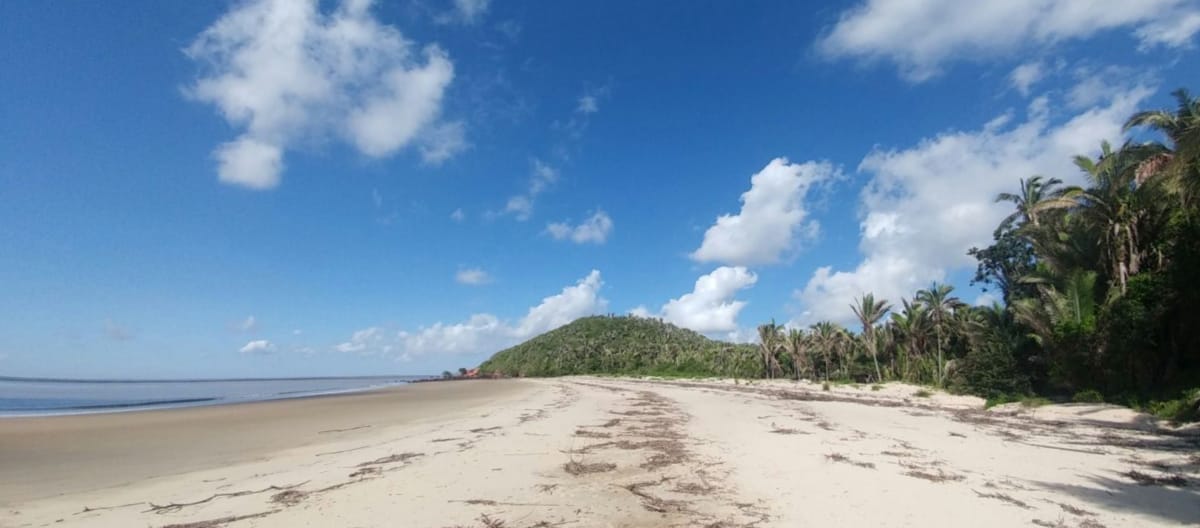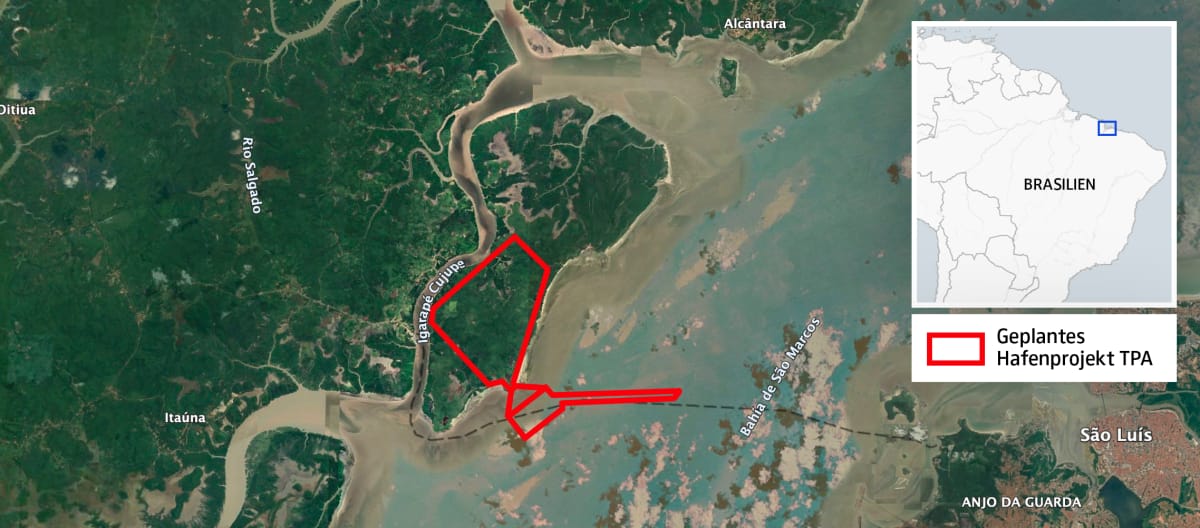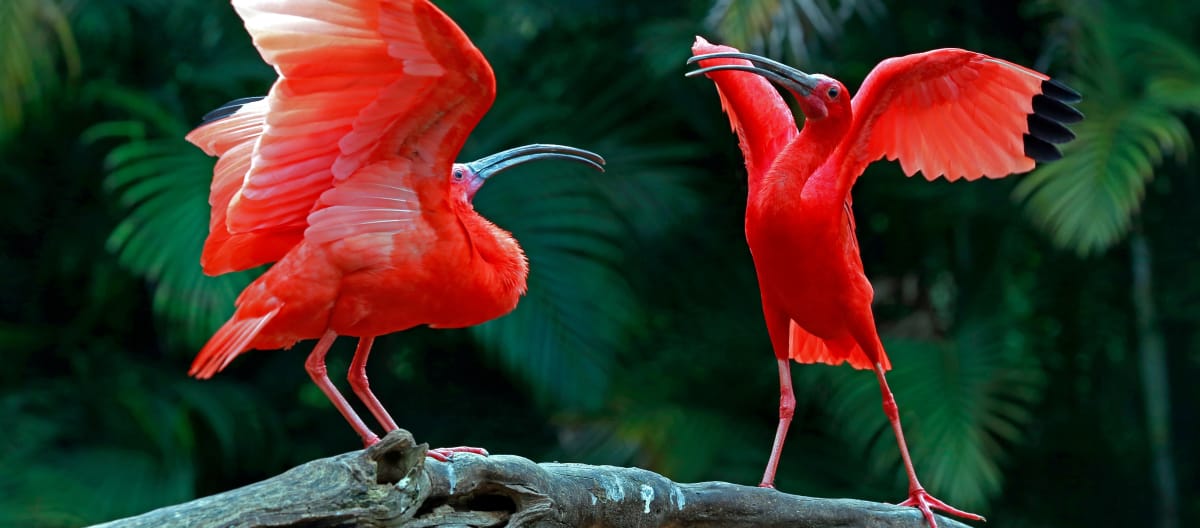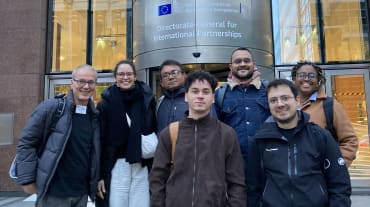Brazil: Defending the Amazon against global demand for commodities
Our partner organization Justiça nos Trilhos (JnT) alerts rainforest communities to threats and works with them to secure their rights. JnT are fighting tooth and nail against a planned project in southeastern Amazonia to build a private freight railway and linked export port for soy and iron ore that would have massive negative impacts on people and nature.
Project Overview
Project FocusEcosystems
Project Objective protecting people and nature from a planned railway and port project for the export of raw materials
Activities studies, raising awareness and lobbying, workshops, international networks
“Now I see in black and white that the Grão-Pará Maranhão project is real. Even though the port and railway line are going to be built through our municipality, no one informed us,” said a woman from Alcântara: “We have to take this project very seriously and stop it, because the impact on our community and other people would be devastating.”
The Alcântara resident is attending a workshop organized by our partner organization, Justiça nos Trilhos (Justice on the Tracks, JnT). The human rights organization, based in the Brazilian state of Maranhão, has been supporting communities affected by mining projects, the soy industry and related infrastructure such as freight railways, highways and ports, since 2007.
The collaboration between Rainforest Rescue and JnT began in the spring of 2023. The occasion: The German embassy in Brazil had invited representatives of Grão-Pará Maranhão (GPM) and Germany’s national railway company, Deutsche Bahn AG, to present the GPM project to Brazilian government politicians, European Union officials and managers of international companies. No information was provided about the dangers the project poses to people and nature in the eastern Amazon region.
Months of research and analysis
With funding from Rainforest Rescue, JnT began its research: They wrote to the state authorities in Maranhão and the capital, Brasilia, to obtain information, copies of applications and pre-approvals related to the proposed private mega-project. JnT analyzed the data, produced maps and outreach materials, and held workshops and seminars to raise awareness of the project’s impacts.
Their findings: GPM plans to build a large private export port and industrial park (Terminal Portuario Alcântara, TPA) on the small island of Cajual in São Marcos Bay on the Atlantic Ocean. Much of the island will be deforested and covered with concrete, precisely where traditional Quilombola communities – the descendants of formerly enslaved people from Africa – live.
A private, 520-kilometer EF-317 freight railway line is planned to connect the port to the interior of the country. Not only would it cut through numerous traditional communities, but six Indigenous territories are located nearby. The GPM project aims to transport millions of tons of mining and agricultural products such as iron ore and soybeans each year for export to China, Europe and the United States.
Awareness is key
Two subsidiaries of Deutsche Bahn AG are involved in the GPM project. The DB E.C.O. Group signed an agreement with GPM at the beginning of February 2023 for the “joint project development and subsequent operation of the freight railway line”, in which DB Engineering & Consulting will play the role of “shadow operator”.
JnT’s work has also revealed that three Portuguese businessmen are pushing ahead with the project largely without any public information, participation or consultation. The rights of Indigenous peoples, Quilombolas and other traditional groups to consultation and free, prior and informed consent, as set out in UN Convention ILO 169, signed by Brazil and Germany, are not being respected. There also appear to be no environmental or population impact studies, despite the fact that the infrastructure project would have a serious impact on people and nature.
“I have come to report what we have experienced, so that the people of Alcântara do not have to suffer what we are already suffering today,” said a participant in the JnT workshop from the municipality of Piquiá de Baixo.
The effects of the GPM project would extend far beyond the port area and the railway line. It is designed to intensify soy cultivation and mineral extraction in the eastern Amazon and adjacent Cerrado savannas. New soy monocultures, eucalyptus plantations and open-pit mines will be created, threatening millions of hectares of protected rainforest, palm forest and mangroves, as well as tropical beaches, biodiverse marine areas, and important sites containing dinosaur fossils more than 95 million years old.
About our partner organization Justiça nos Trilhos
Justiça nos Trilhos (JnT) grew out of a campaign to support communities affected by Brazilian mining company Vale SA’s iron ore railway. Since 1985, the 892-kilometer Estrada de Ferro Carajas (EFC) freight railway has transported some 200 million tons of iron ore annually from the Carajas mine in the Amazon rainforest of the state of Pará to the export port of Ponta da Madeira near São Luís on the Atlantic Ocean. The railway line has a massive impact on the health and freedom of movement of the population and cuts through nature and waterways. At least 47 people have died in accidents on the line.
Justiça nos Trilhos has an office in the capital of Maranhão, São Luís, and another in the city of Açailandia, in the interior of the country. JnT is also active in various networks fighting the mining industry.
If you would like to support the work of the environmental and human rights organization Justiça nos Trilhos and the traditional peoples and communities in Brazil threatened by the GPM rail and port project, please donate in the “Rainforest Conservation” donation category.
Video: Report on the impact of GPM’s rail and port project on the inhabitants of the island of Cajual and surrounding communities (in Portuguese, 5 min.)
- Report by the GloboTV television station in Portuguese. JMTV 2ª Edição. Ativistas dos direitos humanos avaliam riscos previstos com criação de ferrovia no MA. 3 min: https://globoplay.globo.com/v/12714679/
numerous traditional communitiesThe two quilombos Alcântara and Tanque de Valenca, 16 agro-reform settlements and 22 communities are directly affected: 1. Alcântara; 2. Bequimão; 3. Peri Mirim; 4. Palmeirândia; 5. São Bento; 6. São Vicente Ferrer; 7. Olinda Nova do Maranhão; 8. Matinha; 9. Viana; 10. Pedro do Rosário; 11. Penalva; 12. Monção; 13. Zé Doca; 14. Governador Newton Bello; 15. Alto Alegre do Pindaré; 16. Santa Luzia; 17. Bom Jardim; 18. Buriticupu; 19. Bom Jesus das Selvas; 20. Amarante do Maranhão; 21. São Francisco do Brejão; 22. Açailândia
The officially recognized and demarcated Indigenous territories are affected: 1. Alto Turiacu, 2. Akroá Gamela, 3. Arariboia, 4. Awa, 5. Caru and 6. Pindaré











